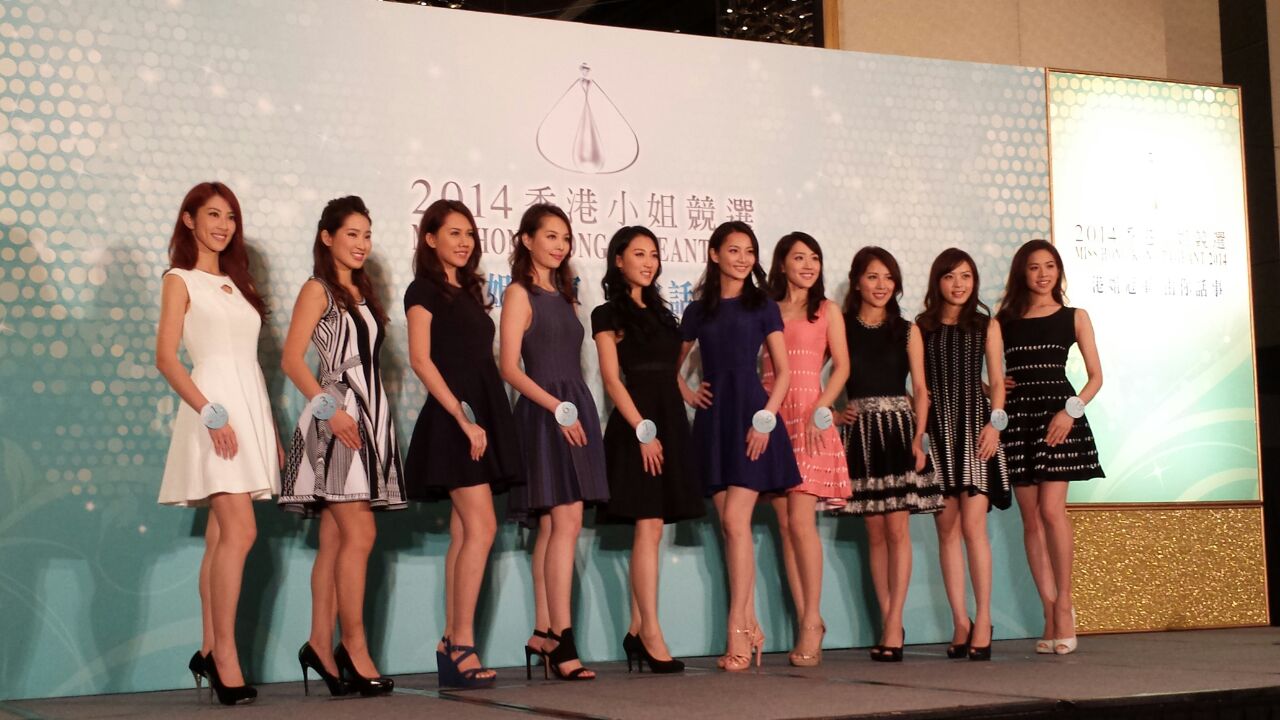From iconic beauty queens to ordinary TV artists
By Teenie Ho
For those who grew up in Hong Kong in the 1970s and 1980s, the annual Miss Hong Kong Pageant was one of the biggest entertainment events of the year. Families sat around television sets at home, rooting for their personal favourites and sharing in her joy or disappointment at the result. The next day, those results would be discussed in school, at work and on the streets.
Some young women and girls looked up to the beauties on the screen and imagined being in their place, waving elegantly at the audiences, or representing Hong Kong in international beauty competitions and getting a start in the glamorous entertainment industry.
But Hong Kong society has changed since 1973 when Television Broadcast Limited (TVB) first broadcast the pageant. Instead of rushing to wait for the show to start, Hongkongers are just as likely to be channel surfing while the show is on. Today Miss Hong Kong contestants can seem like old-fashioned throwbacks rather than iconic stars.

Acca Shum Kwai-ching, one of the top 10 finalists of the Miss Hong Kong Pageant 2013 says the image of Miss Hong Kong has been declining in recent years. She thinks that rather than a competition for physical beauty and grace, today’s pagaents are a vehicle to recruit attractive young women for the entertainment industry. “The ultimate goal for TVB in the Pageant is to search for potential artists,” Shum says, “I can tell that if the girl is not keen on acting or doesn’t fit the profile of what TVB is looking for, she is less likely to win.”
Although TVB still presents Miss Hong Kong as a paragon of beauty and wisdom, it is increasingly difficult to sell this carefully constructed image to viewers. Compared to classic beauty queens, such as Loletta Chu Ling-ling and Olivia Cheng Man-nga in the 1970s and 1980s, the winners of Miss Hong Kong in the 21st century seem to lack mystique. In the past, winners would spend their year-long “reign” as unofficial ambassadors for Hong Kong, taking part in international competitions and charity activities. Now, they are immediately trained to be actors in TV dramas or as presenters for entertainment shows. In other words, they are not much different from other newcomers in the TV industry.
Veronica Shiu Pui-sie, Miss Hong Kong 2014, disagrees that the contest is simply a means to find entertainment industry recruits. “I think the winner of each year represents that particular year,” she explains, “and to do that she should use her own way to display both her inner and outer beauty.” Shiu says the audience’s definition of beauty varies over time and amiability now seems to be a more important virtue for beauty queens.
Emphasising the personality of the contestants, today’s production teams try to establish a more approachable image of Miss Hong Kong and contestants are given more individual time to express themselves in front of the cameras and interact with the audience. They often speak to their fans through social media, posting selfies, behind-the-scene details about the pageant preparations and updates from their daily lives. Through blogs and platforms like Facebook they are encouraged to get fans to post messages of support.
Beauty pageants have long been seen as a commercial gimmick for the Hong Kong TV industry to attract the public’s attention, and that extra attention can in turn be monetized. Different companies sponsor the jewellery and luxury goods for the contestants during the broadcast to maximise publicity, while the TV companies sell commercial time during the live competition.








































